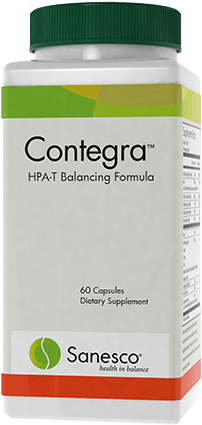
16 Mar Sleep problems, cravings, and low mood got you down?
Have you ever heard of taking antidepressant medications to fix chronic constipation or diarrhea?
Happens all the time when healthcare providers give up on trying to find the root cause of their patient’s symptoms, especially serotonin imbalances. But it doesn’t have to be that way and I saw it again this week with a new patient in my private practice!
What is Serotonin?
Serotonin is a neurotransmitter responsible for regulating several physiological processes, including mood, appetite, sleep, and pain perception. A lack of serotonin or serotonin imbalance can lead to several symptoms, such as anxiety, low mood, and sleep disorders. It’s crucial to maintain a healthy balance of serotonin in the body to promote physical and mental well-being.
What Does Serotonin Do?
Serotonin is produced primarily in the gastrointestinal tract and the central nervous system. As an inhibitory neurotransmitter, it helps balance the excitatory effects of other neurotransmitters in the body. This balancing effect makes serotonin important for mood and sleep regulation, memory, pain, and many other biological functions.
What Happens When You Have a Serotonin Imbalance?
Serotonin imbalance can lead to several health concerns, including low mood, anxiety, sleep disruptions, gut issues, and cravings and urges. For example, low serotonin levels are often seen with low mood, anxiousness, and stress, while high serotonin can cause euphoria, but can also lead to feelings of fear, restlessness, and blood pressure imbalances. Imbalanced serotonin levels are also associated with gastrointestinal issues, such as constipation, irritable bowel syndrome, and increased food cravings.
How Can You Maintain Healthy Serotonin Levels?
Several lifestyle factors can help maintain healthy serotonin levels, such as eating a healthy diet rich in tryptophan, getting enough sunlight exposure, regular exercise, and practicing stress-reducing activities like meditation and yoga. Supplements like 5-HTP and vitamin B6 can also help support healthy serotonin levels.
Serotonin plays a significant role in regulating several physiological processes, including mood, sleep, and pain perception. A serotonin imbalance can lead to several health concerns that impact quality of life, so it’s essential to maintain a healthy balance of serotonin in the body through lifestyle changes and supplements. By promoting healthy serotonin levels, individuals can improve their physical and mental well-being and lead a happier, more fulfilling life.
Testing your neurotransmitter levels is important for maintaining optimal mental and physical health. If you have any symptoms that you believe may be related to a serotonin imbalance, let’s get you started down the right path toward balance.
Ready to feel better? Hit reply and let’s talk about some options for getting tested and improving your health.
Targeted Support
Contegra™ is a broad-spectrum support formula for those who complain of anxiousness yet are fatigued due to poor sleep quality. Ingredients in Contegra™ support balance within the hypothalamic-pituitary-adrenal-thyroid (HPA-T) axis. Contegra also includes ingredients that support inhibitory activity as well as ingredients for excitatory activity to maintain inhibitory and excitatory balance.
Contegra™ may be used in the Initial, Restoration or Maintenance phases on the path to patient wellness.
Enjoy this content?
Become a Patron to get exclusive content, e-downloads, free NeuroWellness classes and exclusive 1:1 coaching support with me! I’d love to help you change your life not just your symptoms to live longer AND live better!
Want more tips, tools and strategies to help you live longer and live better with lifestyle medicine? Join our mailing list today!



No Comments